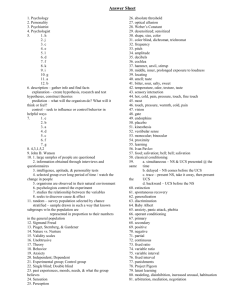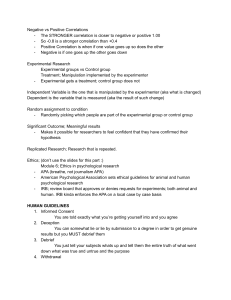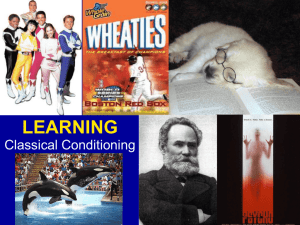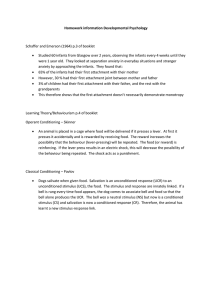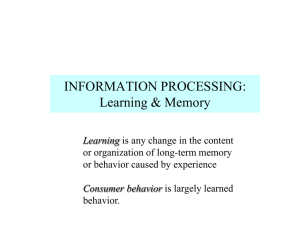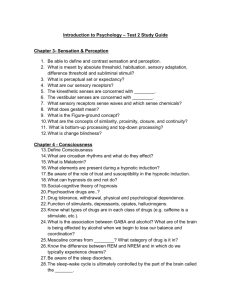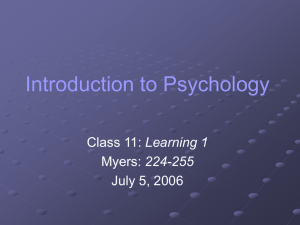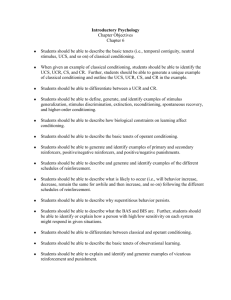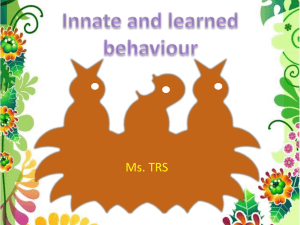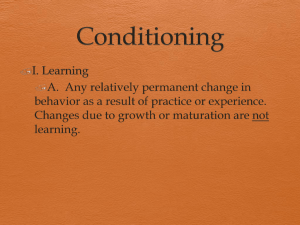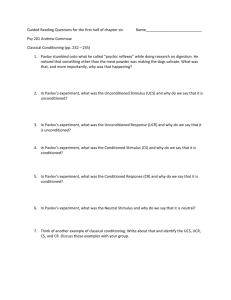University of Leicester Year 1 Psychology Learning and Memory
advertisement
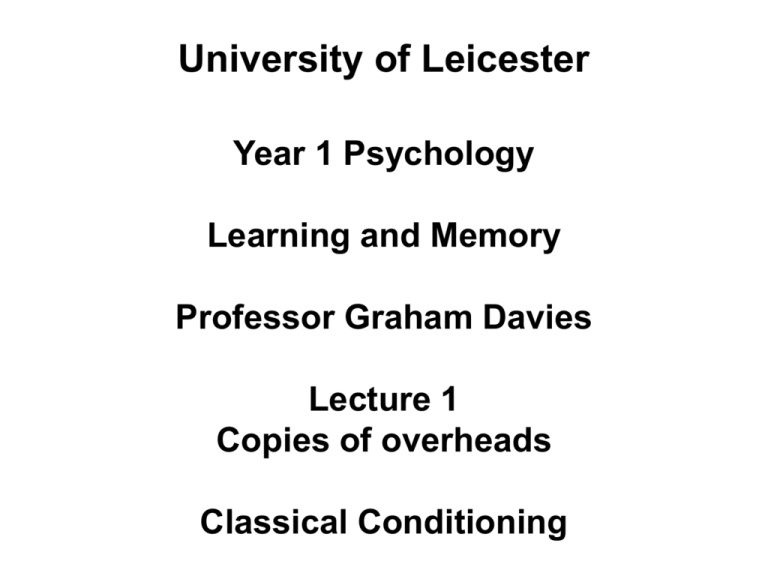
University of Leicester Year 1 Psychology Learning and Memory Professor Graham Davies Lecture 1 Copies of overheads Classical Conditioning Ivan Pavlov (1849 – 1936) • Extinction • Spontaneous recovery • Generalisation • Discrimination Terminology • Meat powder = unconditioned stimulus (UCS) • Salivation = unconditioned response (UCR) • Bell/tone = conditioned stimulus (CS) • Salivation to = conditioned response bell tone (CR) The stages of classical conditioning TIME STIMULUS Before C.C. UCS (meat powder) presented alone UCR (Salivation) CS (bell) presented alone No response UCS (meat) + CS (bell) presented together Salivation CR (Salivation) During C.C. Following C.C. CS (bell) presented alone RESPONSE Applications of conditioning • Personality theory - introverts and extroverts (Eysenck) • Neuroses - Phobias – ‘Little Albert’ (Watson & Raynor, 1920) • Systematic Desensitisation – -‘Little Peter’ (Jones, 1924) Conditioning in Action • Dog phobias • Chemotherapy patients Mechanistic assumptions of conditioning • Conditioning is a gradual process • Temporal contiguity is essential • Any stimulus can be conditioned to any response All have been challenged Garcia & Koelling (1966) • Prior: saccharin ingest • Experiment: saccharin nausea + noise (several hours later) + light • Post-experiment: saccharin disgust & rejection plain water ingest + noise + light Conditioning and Animal Behaviour • Biological preparedness (primacy of taste) • Biological adaptiveness (behaviour of wild rats) • Subtle interaction of learned and instinctive behaviour (implications for other forms of learning)
